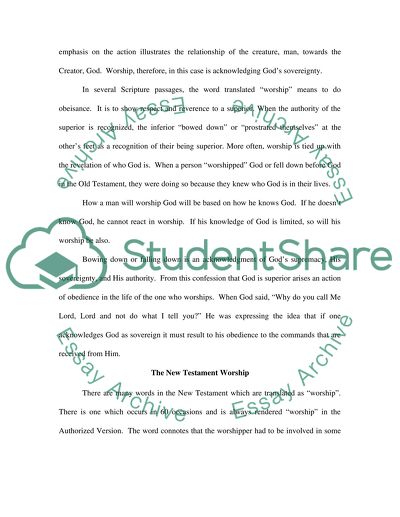Cite this document
(“Biblcal Concepts of Worship Essay Example | Topics and Well Written Essays - 2500 words”, n.d.)
Biblcal Concepts of Worship Essay Example | Topics and Well Written Essays - 2500 words. Retrieved from https://studentshare.org/miscellaneous/1521508-biblcal-concepts-of-worship
Biblcal Concepts of Worship Essay Example | Topics and Well Written Essays - 2500 words. Retrieved from https://studentshare.org/miscellaneous/1521508-biblcal-concepts-of-worship
(Biblcal Concepts of Worship Essay Example | Topics and Well Written Essays - 2500 Words)
Biblcal Concepts of Worship Essay Example | Topics and Well Written Essays - 2500 Words. https://studentshare.org/miscellaneous/1521508-biblcal-concepts-of-worship.
Biblcal Concepts of Worship Essay Example | Topics and Well Written Essays - 2500 Words. https://studentshare.org/miscellaneous/1521508-biblcal-concepts-of-worship.
“Biblcal Concepts of Worship Essay Example | Topics and Well Written Essays - 2500 Words”, n.d. https://studentshare.org/miscellaneous/1521508-biblcal-concepts-of-worship.


